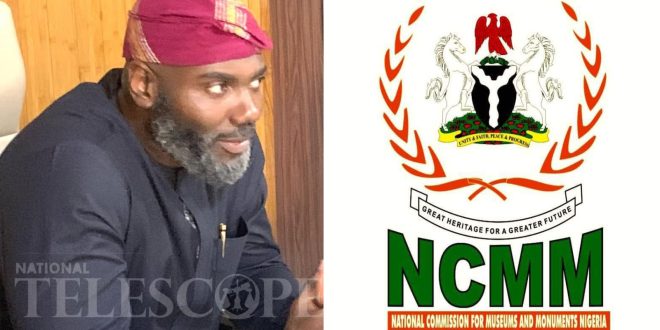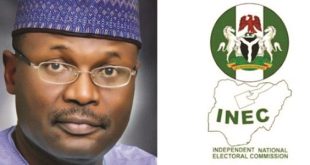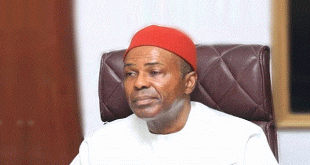Museums Commission Urge States to Protect Nigeria’s Cultural Legacy
By Funmilayo Ojo |
National Commission for Museums & Monuments (NCMM), has called on various State governments and other stakeholders to protect the nation’s cultural heritage.
The NCMM, Director-General, Olugbile Holloway, who stated this in a statement on Thursday called for the support of governments at all levels, communities, and stakeholders to achieve its objectives of preserving Nigeria’s national heritage for humanity and posterity.
He stated this in commemoration of the International Day for Monuments and Sites, an occasion that highlights the significance of monuments and sites in national development.
Designated by the International Council on Monuments and Sites (ICOMOS), the International Day for Monuments and Sites serves as a platform to express gratitude to communities and stakeholders for their unwavering support in conserving and preserving monuments and sites worldwide. This year’s theme, “Disaster and Conflict Resilient Heritage – Preparedness, Response and Recovery,” underscores the importance of safeguarding cultural and natural heritage in the face of adversity.
Every year on 18 April, ICOMOS celebrates the “International Day for Monuments and Sites”, whose establishment was approved by the 22nd UNESCO General Conference in 1983.
It reads in part, “It equally draws attention to the unique role of the National Commission for Museums and Monuments as it relates to the preservation of cultural and natural heritage resources of our nation, Nigeria. The theme for this year’s celebration is Disaster and Conflict Resilient Heritage – Preparedness, Response and Recovery.
“ICOMOS members and heritage professionals are encouraged to consider the evolution of conservation practices since the Venice Charter. The Venice Charter is a seminal document in the field of conservation and preservation of cultural heritage,. adopted in 1964, which outlines principles and guidelines for the protection and restoration of monuments and sites of historical significance.”
The celebration also shines a spotlight on the pivotal role of the National Commission for Museums and Monuments in safeguarding Nigeria’s cultural and natural heritage. Emphasizing the significance of the Venice Charter, a landmark document in conservation, the NCMM reaffirms its commitment to upholding principles and guidelines for the protection and restoration of historical monuments and sites.
Working in collaboration with the United Nations Educational, Scientific & Cultural Organization (UNESCO), the NCMM continues its efforts to identify and protect cultural and natural heritage recognized as part of the common heritage of mankind. Currently, Nigeria boasts two UNESCO World Heritage Sites: the Sukur Cultural Landscape in Adamawa State and the Osun Osogbo Sacred Grove in Osun State, alongside a significant number of national monuments and proposed national monuments.
With a mandate to conserve and manage Nigeria’s diverse array of national monuments and sites, the NCMM remains steadfast in overcoming challenges through strengthened partnerships with communities, traditional institutions, academia, security agencies, NGOs, corporate bodies, philanthropists, and government agencies.
As the world commemorates the International Day for Monuments and Sites, the NCMM reaffirms its commitment to preserving Nigeria’s rich cultural and natural heritage, ensuring its enduring legacy for generations to come.
“Nigeria has only two World Heritage Sites on the UNESCO World Heritage List (Sukur Cultural Landscape in Adamawa State and Osun Osogbo Sacred Grove in Osun State) along with sixty- five (65) Declared National Monuments and One Hundred and Twelve (113) proposed National Monuments of different categories.
“The National Commission for Museums and Monuments, the government agency charged by statute to conserve and manage Nigeria’s rich array of national monuments and sites will continue to remain undaunted by challenges before it and will consistently surmount them by strengthening our partnerships with the communities that host our 2 World Heritage Sites, 65 national monuments, 113 proposed national monuments across the nation alongside various critical stakeholders such as traditional institutions, academia, security agencies, non-governmental organizations, corporate bodies, philanthropists, culture-enthusiasts and sister government agencies in this journey.”
 National Telescope national telescope newspaper
National Telescope national telescope newspaper



